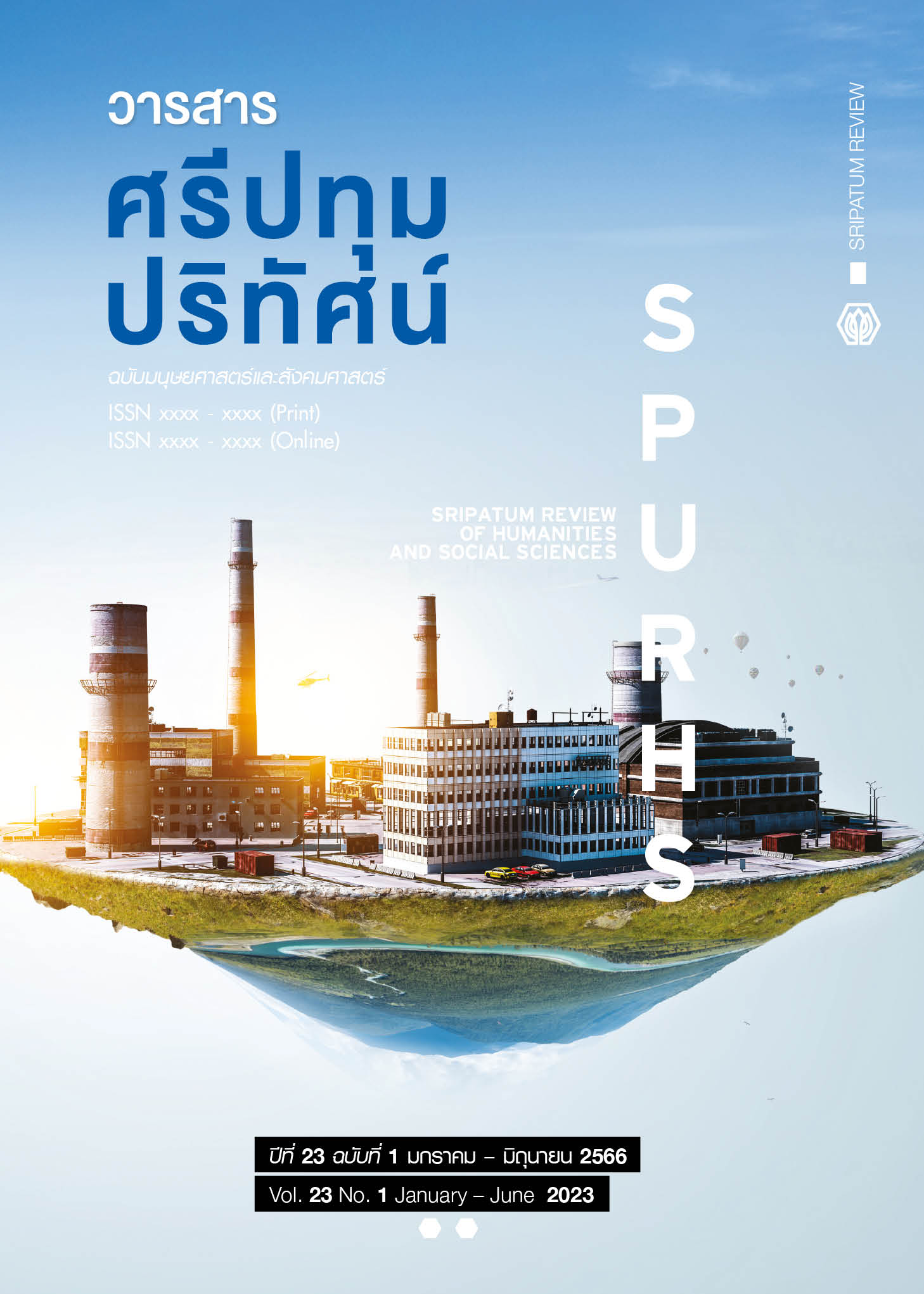Factors influencing Brand Loyalty and Customer Satisfaction of Measurement Tools in The Food Industry in Thailand
Main Article Content
Abstract
The objective of the research was to study the factors affecting brand loyalty and customer satisfaction as measurement tools for the food industry in Thailand, using a multiple linear regression model. The researcher used a simple random sampling method with a sample group of 201 food industries in Thailand. The research instrument was a rating scale questionnaire, the Cronbach’s coefficient score was between 0.703-0.948
The research found that two factors affecting brand loyalty for industrial measuring tools in the food industry were brand logo experience and customer satisfaction. The multiple linear regression equation related to the score of brand loyalty for industrial measuring tools in the food industry was obtained. The standard error of regression was 0.280, the adjusted coefficient of determination was 71.30, and the coefficient of determination was 71.60
Additionally, the research found that two factors affecting customer satisfaction were (1) brand logo awareness and (2) brand logo experience which is affected to level of customer satisfaction for industrial measuring tools in the food industry was obtained. The standard error of regression was 0.297, the adjusted coefficient of determination was 62.60, and the coefficient of determination was 62.90
Article Details

This work is licensed under a Creative Commons Attribution-NonCommercial-NoDerivatives 4.0 International License.
1. กองบรรณาธิการสงวนสิทธิ์ในการพิจารณาและตัดสินการตีพิมพ์บทความในวารสาร
2. บทความทุกเรื่องจะได้รับการตรวจสอบทางวิชาการโดยผู้ทรงคุณวุฒิ แต่ข้อความและเนื้อหาในบทความที่ตีพิมพ์เป็นความรับผิดชอบของผู้เขียนแต่เพียงผู้เดียว มิใช่ความคิดเห็นและความรับผิดชอบของมหาวิทยาลัยศรีปทุม
3. การคัดลอกอ้างอิงต้องดำเนินการตามการปฏิบัติในหมู่นักวิชาการโดยทั่วไป และสอดคล้องกับกฎหมายที่เกี่ยวข้อง
References
Aaker, D. A. (1991). Managing brand equity. New York: The Free Press
Benyasrisawat, P. (2017). Knowledge of industrial products. Pathum Thani: Faculty of Accountancy, Bangkok University. (in Thai)
Brakus, J. J. (2009). Brand Experience: What Is It? How Is It Measured? Does It Affect Loyalty. Journal of Marketing, 73(3), 52-68.
Charatphan, P. (2016). Customer Satisfaction on Service Quality of Genet Mobile Service Center Chanthaburi. Thesis of the Degree of Master of Public Administration. Chonburi Burapha University. (in Thai)
Charoensiang, J. (2015). The effect of direct investment to ASEAN countries on the potential of the Thai food industry. Bangkok: Faculty of Economics, Chulalongkorn University. (in Thai)
Dejworasuthi, S. (2016). The influence of brand awareness. interest in sales promotion and service satisfaction Affecting TNT Brand Loyalty. Thesis of the Degree of Master. Pathum Thani: Bangkok University. (in Thai)
Department of Industry Promotion. (2017). The value of food exports, both in terms of fresh food and processed food in Thailand. Bangkok: Office of the Permanent Secretary, Department of Industry Promotion. (in Thai)
Hanweera, M. (2017). Factors Affecting Customer Loyalty towards New Car Brands from China. Thesis of the Degree of Master. Bangkok: Thammasat University. (in Thai)
Keng, C. J., Tran, D. T., and Thi, T. M. L. (2013). Relationships among brand experience, brand personality, and customer experiential value. Contemporary Management Research, 9(3), 247-262.
Kongprasom, A. Khamrod, S., Srikhaltai K., Intaprot, P., Tanyapornhirun, N. and Uttamasirireni, C. (2021). Estimation of Average Price of Gold Futures Contracts During the COVID-19 Pandemic. with a multiple linear regression model. The Proceedings of the 11th Panyapiwat National Academic Conference and the 5th International Conference, Panyapiwat Institute of Management, 653-662. (in Thai)
Kotler, P. (2012). Marketing Management. 10th ed. Upper Saddle River, NJ: Prentice Hall.
Kumar, V., and Reinartz, W.J. (2006). Customer Relationship Management: A Databased Approach. Hoboken, NJ: John Wiley & Sons, Inc.
Lorpraditphong, L. (2018). Customer satisfaction survey Handbook. Bangkok: Thong Printing Group Meeting. (in Thai)
Mongkolsiri, S. (2014). Brand Management Brand Management. Bangkok: Love and Liv. (in Thai)
Panthewi, W. (2014). People's Satisfaction with the Services of the Ministry of Interior in Mueang District, Mae Hong Son Province. Thesis of the Degree of Master. Chiang Mai: Chiang Mai University. (in Thai)
Saiyot, L. and Saiyot, A. (2000). Measurement of the range. Bangkok: Sureeriyasan. (in Thai)
Srisaard, B. (2013). Statistical Methods of Research. 5th ed. Bangkok: Suweeriyasan. (in Thai)
Tangsathitkien, W. and Sakthong, P. (2012). Improvement of the contents of the Living with Heart Disease questionnaire. Failed Minnesota's Thai version with an interview method. The thought process of answering questionnaires. Thai Pharmaceutical and Health Science Journal-Thai Pharmaceutical and Health Science Journal, 4 (2), 227-235. (in Thai)
Wangamornmit, T. (2017). Factors Positively Influencing Loyalty of iPhone Customers in Bangkok. Independent Study of the Degree of Master. Pathum Thani: Bangkok University. (in Thai)
Watson, G. S., & Durbin, J. (1951). Exact tests of serial correlation using noncircular statistics. The Annals of Mathematical Statistics, 22(3), 446-451.


